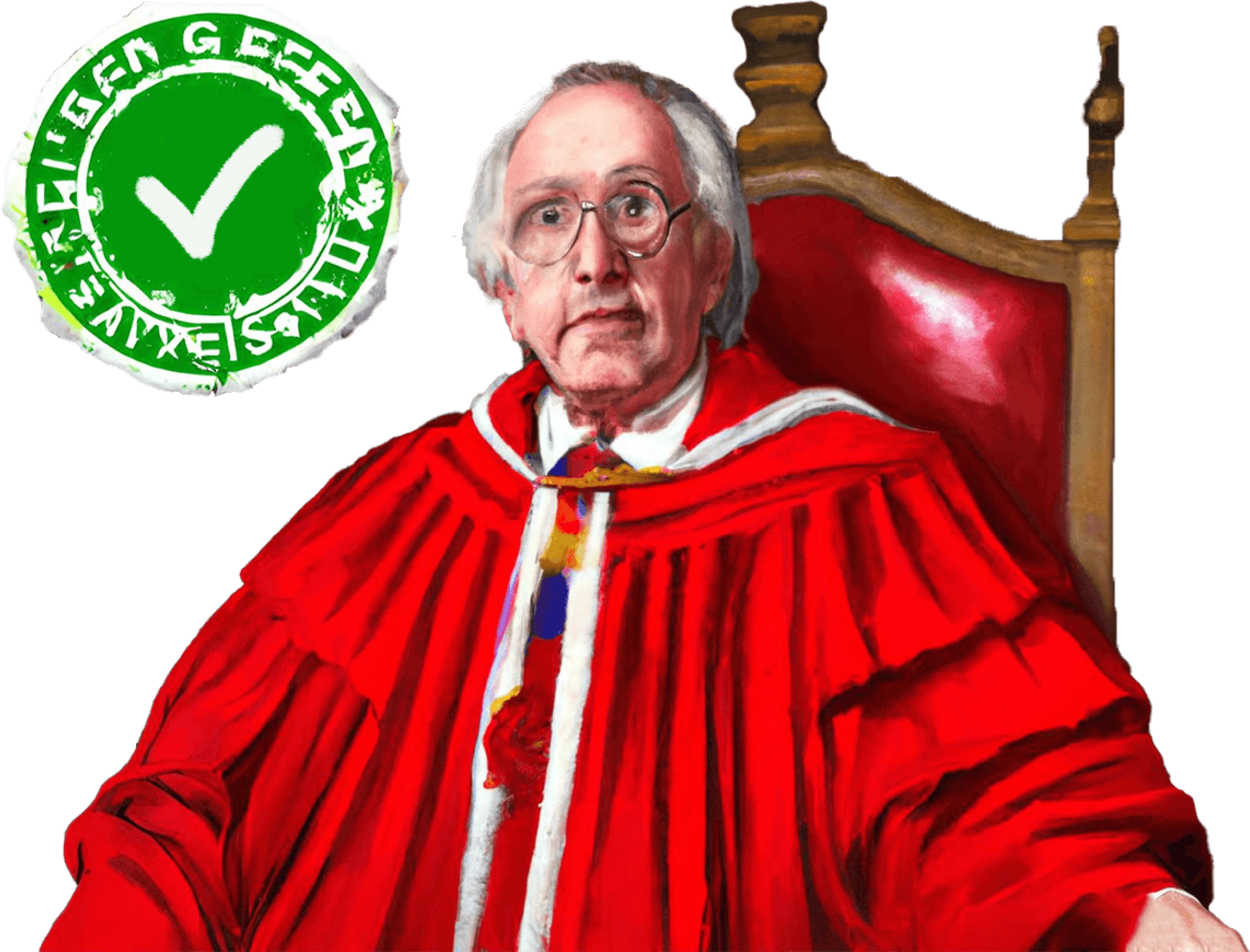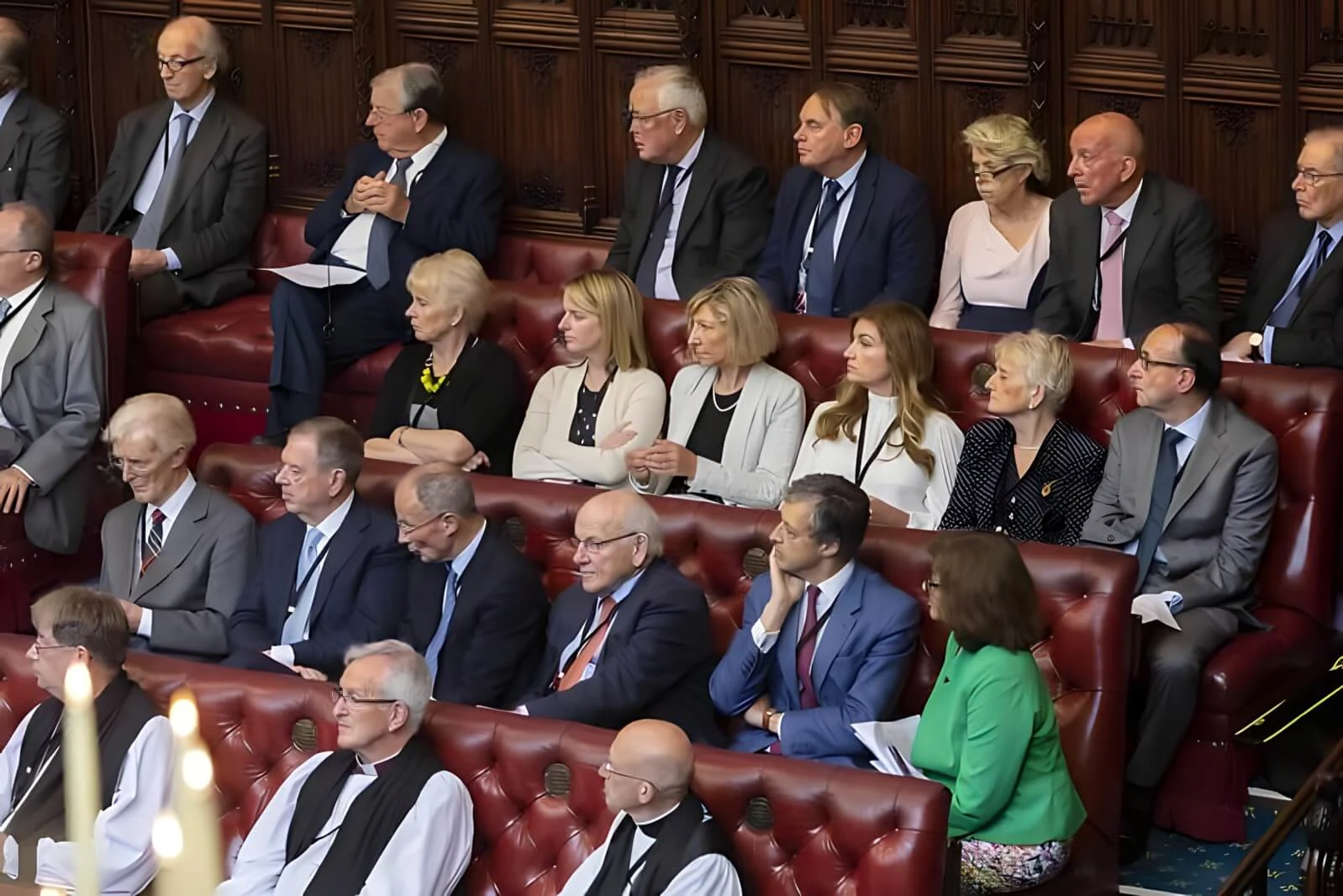In Defence of The Lords
30 May 2023
The most important constitutional question of our age, and how we should answer it.

30 May 2023

I know it's odd. A Liberal defending the House of Lords, but while I may not be living up to my predecessors' campaigns against the unelected upper chamber, there is still a credible argument for its continued existence… even in 2023.
Tracing its roots back to the 11th century, when the Kings of England consulted a national council of bishops and nobles, the House of Lords has been a permanent feature of Britain's national affairs for centuries - and it has remained largely the same. As Britain moved into the 13th and 14th centuries, and those known as 'commoners' were asked to participate in governing the country, the bicameral parliament was born, and has been a model for legislatures around the world since its inception in Anglo-Saxon and Norman England.
The Lords had always been more powerful than the House of Commons, and its power fluctuated in relation to that of the monarchy. By the eighteenth century, however, the upper chamber was at the forefront of defending parliamentary democracy against overzealous monarchical power, and a testament to that is the number of prime ministers during this time that occupied seats in the Lords as 'peers of the realm'. Only as elections became more democratic and various extensions to the franchise were enacted in the 19th century, did the Lords secede some of its power to the elected Commons - which has enjoyed the spotlight for political happenings since then. Indeed, just a decade before he assumed the office of Prime Minister, the Duke of Wellington said in 1817: Nobody cares a damn for the House of Lords; the House of Commons is everything in England and the House of Lords nothing.
Perhaps the reason for this is that the Lords has never been representative. Well, of course Archie, it is unelected after all. Yes, but what I mean is that the citizens of the Kingdom could never have looked to a house of landed gentry and aristocracy as leadership; instead they found that in the Commons. This problem was revisited in 1958 by the Life Peerages Act - which created life peers who are appointed to the upper chamber for life by the Prime Minister in recognition of their merit or public service. This made the peerage system less about pomp, pageantry and lineage, and more open to, well, normal people.
Without the looming pressure of facing an election, or the demands of party discipline, the House of Lords has much more time to give detailed legislative scrutiny.
We came across this problem of social representation again when Tony Blair's New Labour government reformed the House of Lords and saw it into the 21st century. A major part of this was the House of Lords Act 1999, which removed all but 92 hereditary peers in the upper chamber, leaving much of the membership consisting of life peers - This made the peerage system less about pomp, pageantry and lineage, and more open to the 'common folk' and those who had devoted their lives and careers. Don't get me wrong, we still have problems. Namely that of cronyism and life peers being the product of prime ministerial patronage - which has moved some to call for the abolition of the House of Lords - an ambition of Labour Leader Sir Keir Starmer and his predecessor Gordon Brown - and the fact that a disproportionate number of those who become life peers are overwhelmingly white, middle class and male. So is it truly representative of Britain in 2023? Perhaps not exactly, but what these reforms did do was dramatically improve the work of the House of Lords, as we shall see.
I have recently had the pleasure of reading A Short History of Parliament, edited by Clyve Jones, honorary fellow of the Institute of Historical Research, and bringing together some of the most notable scholars and parliamentary historians to bring us a comprehensive, non-political history of our legislature. A particular chapter of this book that made me put my coffee down was Peter Dorey's (reader in British politics at Cardiff University) exploration of how both the Life Peerages Act and the House of Lords Act culminated in a truly reformed and enhanced upper chamber, with the former infusing what he called 'new blood' into the House of Lords - which had been entirely hereditary since 1387. He says that in combination with the Parliament Acts 1911 and 1949 (which asserted the primacy of the House of Commons by restricting the power of the Lords), these two major reforms helped make the House of Lords more socially representative of British society than it had ever been previously, and render debates in the upper chamber vastly more productive and fruitful.
For example, the infusion of 'new blood' into the House of Lords via the 1958 Act meant that peers of the realm now emanated from careers in academia, the civil service, the legal profession and the voluntary sector. In fact, between 1958 and 2007, the occupational background of life peers was as diverse as it was interesting, with 40% being former politicians (MPs, Ministers etc.), 11% from industry, and 7% from the academic world. Although the Lords remained unelected, their roots in many walks of life gave them more legitimacy and increased moral authority. With such professional knowledge in the chamber, debates were now more and more productive, with legislators able to offer their own professional expertise in contribution. When, for example, April 2004 saw the Lords' second reading debate concerning the Blair government's Higher Education Bill (introducing top-up fees for university students), over half of the peers who participated were experienced in one way or another with universities; mostly in chancellor of professorial roles.

Anyone familiar with how parliament works will know that much of the work - the nitty gritty stuff, the details and the amendments - is done in committees. This is because the main chambers of the Commons and the Lords simply do not have time to consider ALL the details of government policy and proposed legislation, such as how high pavements should be from the road. The 1958 and 1999 Acts had a huge influence on this as well. Take the Lords' economic affairs committee, benefited by its membership consisting of two former chancellors of the exchequer, a vice-chair of Goldman Sachs merchant bank, a former governor of the Bank of England and a professor of economics. The highly respected science and technology committee of the House of Lords was also graced by a former civil and electrical engineer, two academic zoologists and an honorary president of the Environmental Industries Commission. The House of Lords had become more knowledgeable.
Yet, this means nothing if we do not consider how important the Lords' unelected nature is in all of this. Without the looming pressure of facing an election, or the demands of party discipline, the House of Lords has much more time to give detailed legislative scrutiny. The effectiveness of the Lords in scrutinising legislation, in fact, has led one Tory peer to argue that the upper chamber ought to remain unelected, despite calls to the contrary. This effectiveness is perhaps best understood when talking about what is called delegated, or secondary, legislation. This is legislation that can bypass parliamentary scrutiny and our elected representatives, giving government ministers the power to rewrite or even repeal whole Acts of Parliament. While delegated legislation is necessary to avoid the whole of parliament having to comb through all the details of the law, this has peers rightly concerned as a 'danger for democracy'.
Due to their ability to scrutinise legislation effectively with the time given to them, the House of Lords is one step closer to solving the issue of delegated legislation. Their Secondary Legislation Scrutiny Committee (SLSC) is charged with examining proposed delegated legislation and brings to the attention of the House of Lords any points they consider noteworthy or questionable. One of these questionable points has been 'skeleton bills', which is effectively a basic framework of the law, with the details left to ministers to fill in later. This gives government officials tremendous scope to alter the law of the land without the consent of parliament and the peoples' elected representatives. The chief concern, however, is not secondary legislation in and of itself, but the extent of its usage. The SLSC has been hard at work with the Lords' other committee working on this matter - The Delegated Powers and Regulatory Reform Committee - and has made a number of recommendations on how the system can be reformed. A vivid example of the Lords hard at work, and a strong case for its continuation.
To be perfectly honest, the problems associated with the House of Lords are not actually to do with the house as much as they are concerning the ability of prime ministers to make just, honest and fair appointments to the peerage. Starmer is right to cite the peerage system and the threat of cronyism in the Lords as a source of distrust in our politics, but that doesn't warrant outright abolition. To abolish the Lords is to expunge what is left of semi-bipartisan, detailed parliamentary law-making from Britain's affairs, and for that reason it ought to stay.
Written by
Archie RankinA young, pen-wielding Liberal with intellectual curiosities in all things politics, with huge appetites for history, philosophy and economics. Committed to making a positive difference for young people in my role as Associate Editor & Innovation Lead, constantly seeking out new ideas and approaches to drive innovation and progress.
Read next
I'm fed up with 'Forever'. Where's our Übermensch?

Sion Marsh
Ignorance is not bliss. Take back your political ownership

Archie Rankin
Why don't we vote? Let's address the elephant in the room

Sean Ryan
Weekly emails
Get more from Archie
The Fledger was born out of a deep-seated belief in the power of young voices. Get relevant views on topics you care about direct to your inbox each week.
Write at The Fledger
Disagree with Archie?
Have an article in mind? The Fledger is open to voices from all backgrounds. Get in touch and give your words flight.
Write the Contrast